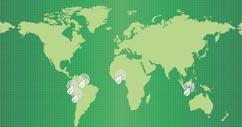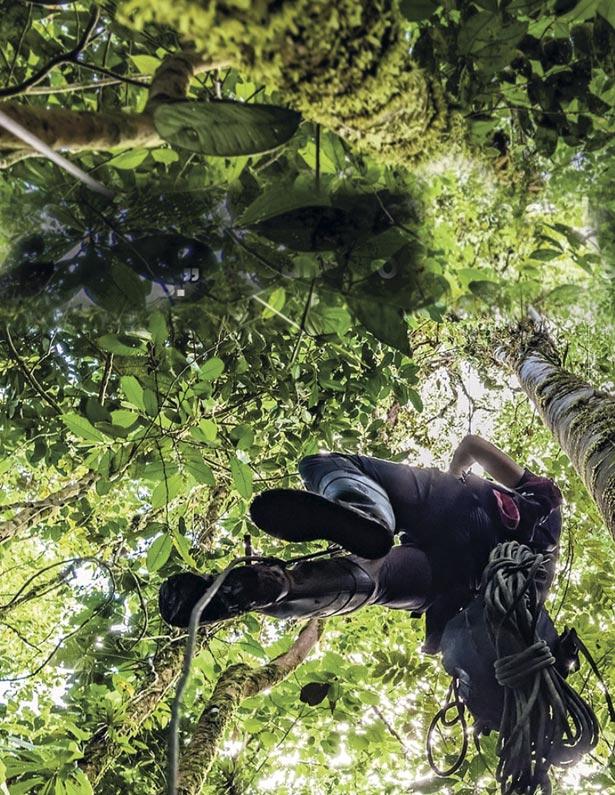
3 minute read
RAINFOREST GUARDIAN
Rolex Associate Laureate and conservation technologist Topher White is saving the climate one cellphone at a time
Topher White hoisting himself into the treetops.
A LOT OF WORLD-FAMOUS ENTREPRENEURS STARTED THEIR COMPANIES IN A
garage. That includes the founders of Amazon, Apple and Google — and Topher White,
the founder of Rainforest Connection. His idea for repurposing used cellphones to create
a surveillance system of listening devices that can report illegal logging in the world's most
vulnerable rain forests started in his parents' garage in the Haight-Ashbury neighborhood
of San Francisco.
For more than four decades, Rolex has supported exceptional individuals like White,
who have the spirit of enterprise, initiating extraordinary projects that help make the world
a better place.
The first Rolex Awards were pre-
sented in 1976 to commemorate the
anniversary of the iconic Rolex Oyster
Watch. And in the decades since, an
impressive roster of laureates — whose
passions and projects reflect the con-
cerns of the times — have been chosen
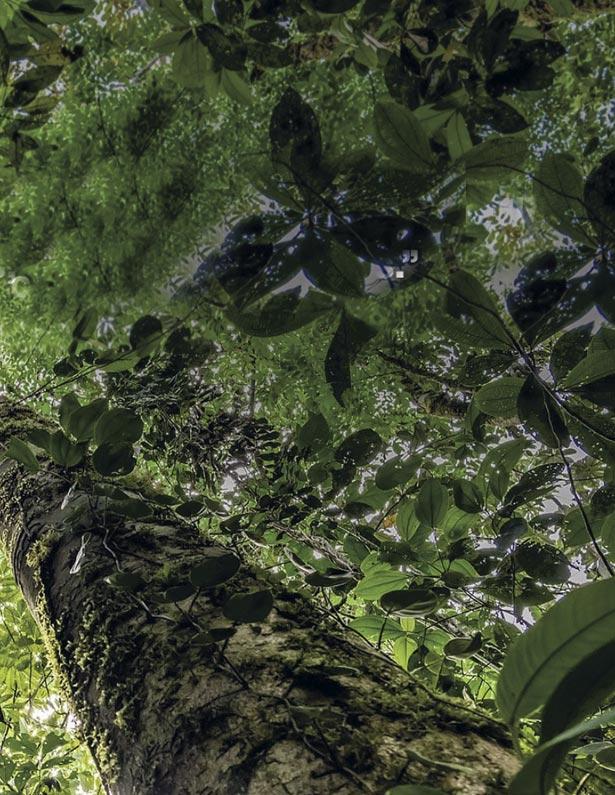
from around the globe. Over the last six
Topher White years, use of White's monitoring devices
has expanded well beyond his garage to remote rainforests throughout the world. It also
earned him a coveted Rolex Award for Enterprise.
Every second of the day, approximately two and a half acres of tropical forests are
destroyed or drastically degraded, according to the INCUR (International Union for
Conservation of Nature), threatening the survival of many species. Illegal logging is the
biggest contributor to deforestation, which in turn contributes to climate change. With the
world’s rainforests now shrinking so fast that they may be gone by 2100, the need for
ways to prevent illegal logging and monitor forest wildlife is urgent.
White's system, in which he rigs a cellphone to stay charged by solar cells was
designed to do just that. “One of the most amazing things is that we’re using old technolo-
gy, the stuff no one’s excited about, to do really cutting-edge science and conservation
around the world,” White explains. “We take an old cellphone – the ones everyone
throws away – and we can put it high up in the trees of the rainforest.
It can listen to all the sounds and, using artificial intelligence, we can
pick out the noise of chain saws, logging trucks, road building – or
even of endangered species of birds or animals.”
Currently, hundreds of the treetop monitoring devices have been
installed over multiple continents creating a powerful "forest
guardian" standing ready to provide timely warnings to communities
and law enforcement agencies. “We form partnerships with local
tribes, government agencies and community groups, and we can
send alerts to them so they can actually show up and stop the illegal
activity in real time, on the ground,” White says.
The same technology is also being used to monitor the sounds
of rare or important species of birds and animals, providing scientists
with a way to study the health of wildlife populations in a given area adding momentum to conservation. The sounds are live-streamed, creating a vast digital library that gives scientists raw acoustic data. “We should be able to detect animals that don’t even make sounds. Jaguars might not always be vocalizing, but birds and other animals around them are,” he says.
White and his nonprofit group, Rainforest Connection, have extensively tested forest-guardian technology with local communities
White's petal-shaped solar panels are designed to catch the dappled sunlight in the jungle. White's monitoring devices can detect illegal logging activity and send a text alert to authorities.
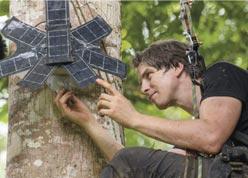
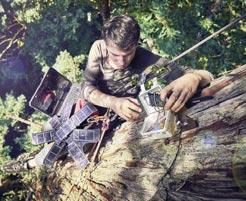
in Brazil, Costa Rica, Ecuador, Romania, South Africa, Belize, Peru, the Philippines and the Indonesian island of Sumatra. “A really important element of what we do is work with local people, the ones who are protecting these areas, as they can have the biggest impact in fighting climate change,” he adds.
What's next for White: “Rainforest Connection technology has surpassed its proof-of-concept phase and has moved into expan-
sion with over 60 new projects in the pipeline. The amount of land protected will be the equivalent of taking six million cars off the road, 400 million trees protected and 30 million tonnes of CO2 sequestered.”
And it all started in a garage. Use of the devices has expanded throughout the world.
